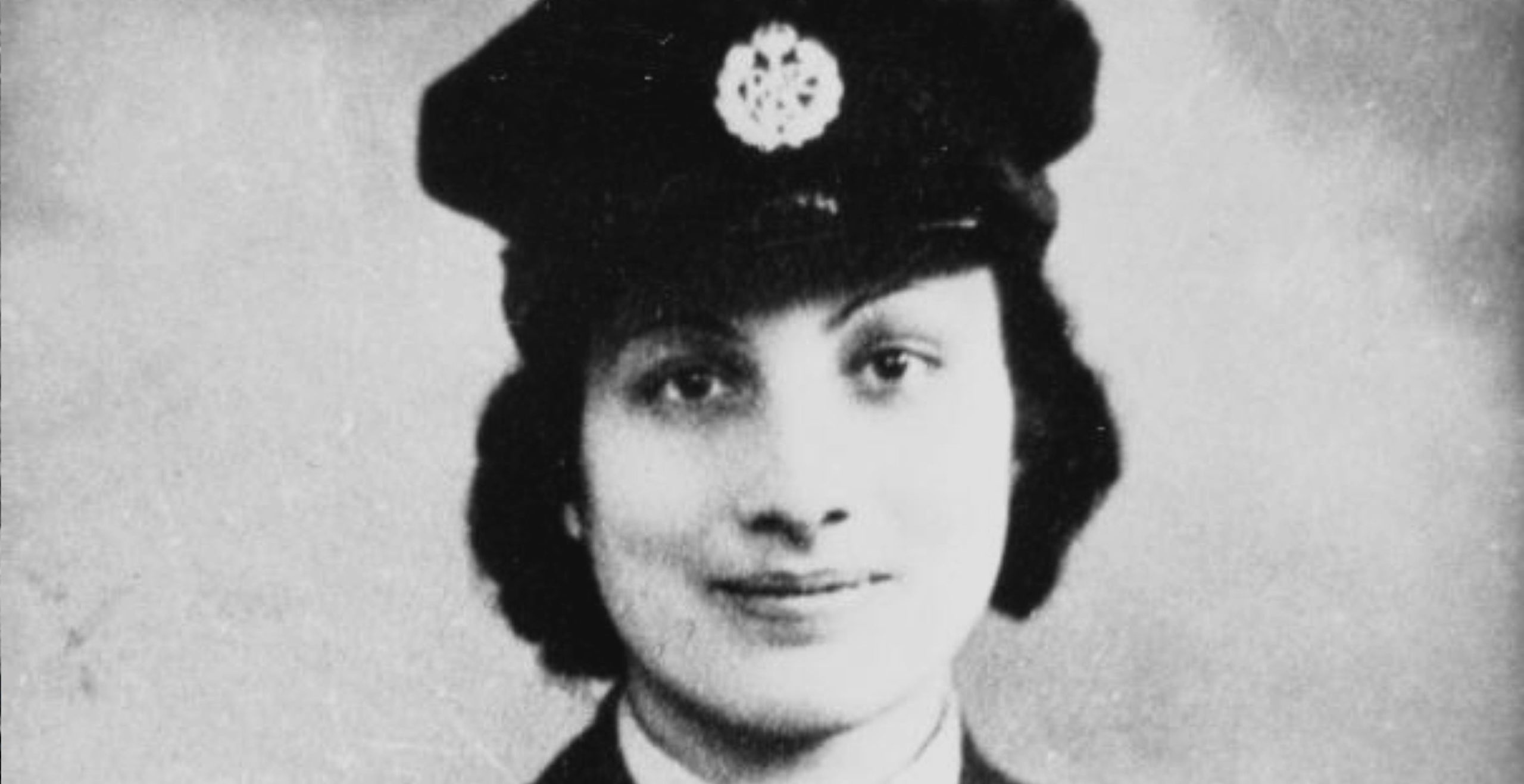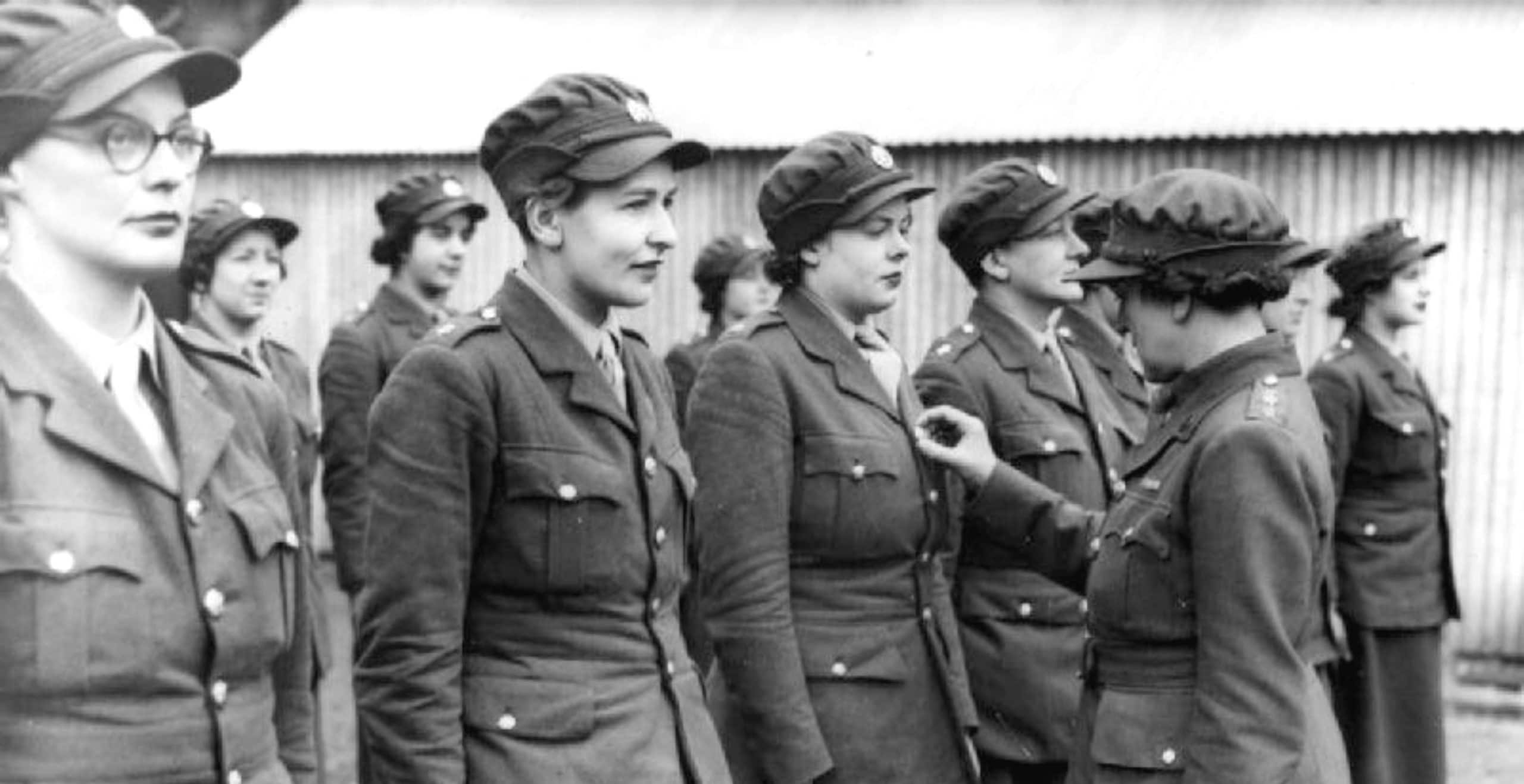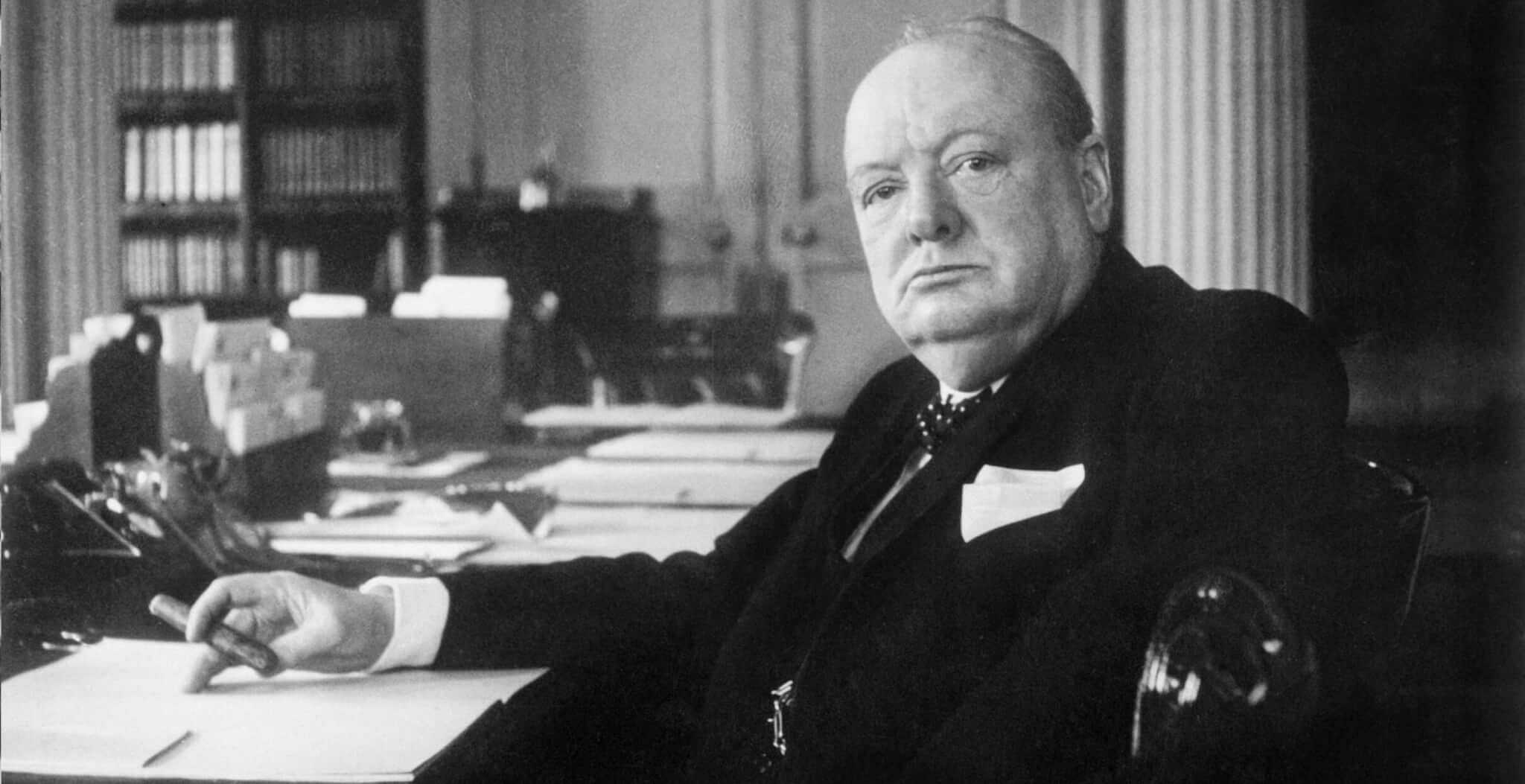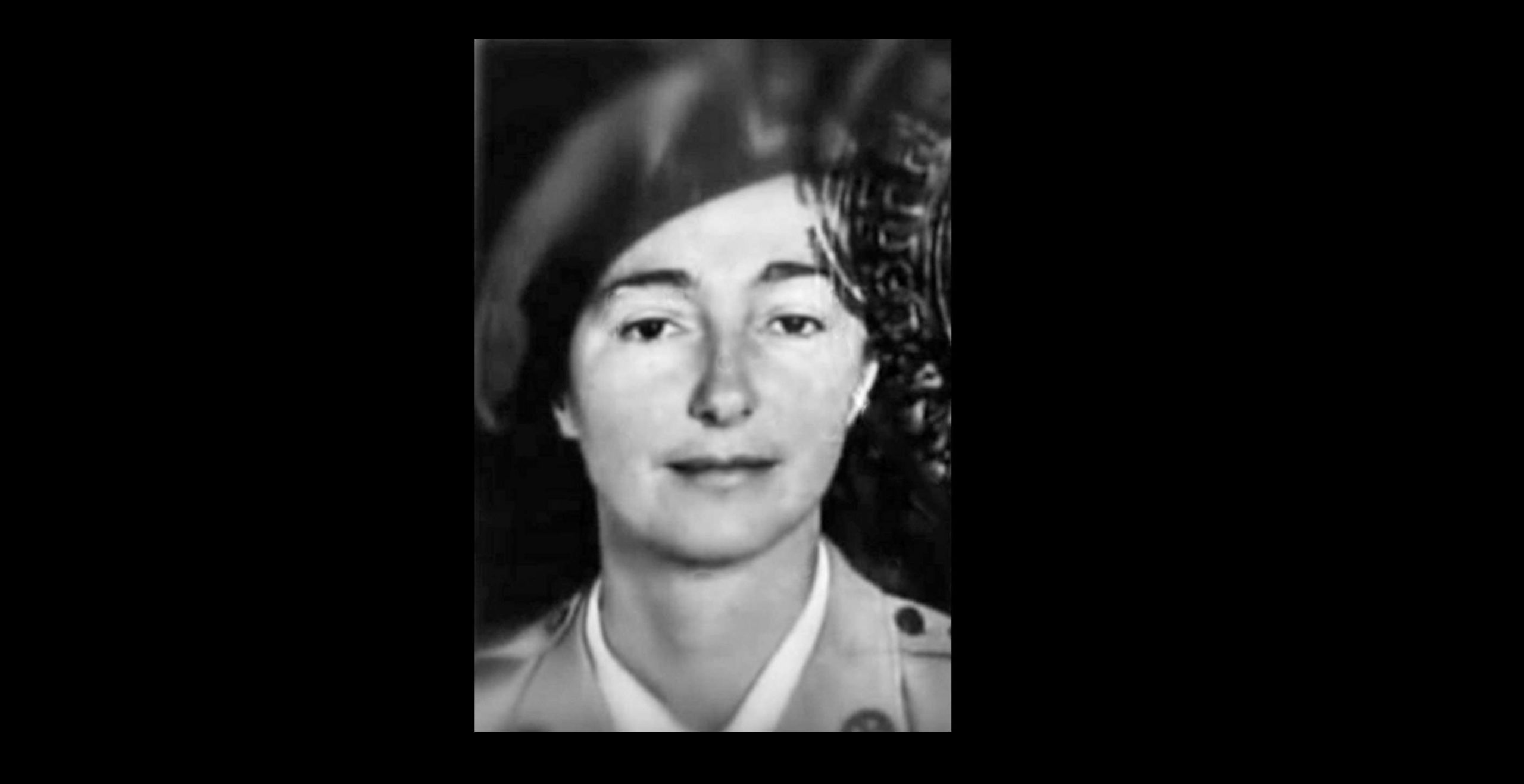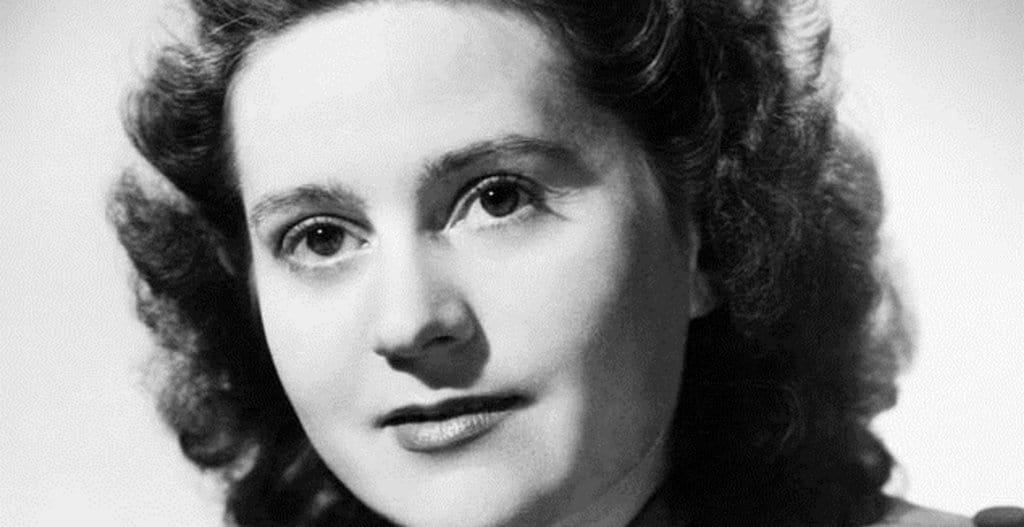The descendant of Indian royalty Noor Inayat Khan, known as Nora Baker, was a British spy who was sent to occupied France in World War Two as a secret agent, only to have her life brutally cut short at the hands of the Gestapo.
She was born Noor-un-Nissa Inayat Khan on 1st January 1914 in Moscow, to an Indian Muslim father and American mother. Her father was a musician as well as a Sufi teacher and a descendant of Tipu Sultan, also known as the Tiger of Mysore who ruled the Kingdom of Mysore in south India
.
Her mother was a poet. Originally called Ora Ray Baker, she took the name Pirani Ameena Begum when she married her husband whom she had met when he was travelling throughout the United States. The couple had four children, of which Noor was the eldest.
When Noor was only a baby, international conflict was on the horizon and only shortly before World War One was declared, the family left Moscow and moved to London, settling in the Bloomsbury area.
She would only spend her early years in London before the family went on to move to France, two years after the war had finished. Whilst living on the continent they moved into a house near Paris where she spent much of her life.
Sadly, at the age of thirteen Noor was dealt a terrible personal tragedy when her father passed away leaving her mother and younger siblings enveloped by grief. Still only a youngster herself, she felt responsible for her family, her sense of duty becoming the cornerstone of her personality as demonstrated later in life.
By the time she was a young woman, she had begun to study child psychology at the Sorbonne whilst also embracing her family’s musical background by studying at the Paris Conservatory under the tutelage of Nadia Boulanger.
She subsequently went on to pursue a career as a children’s writer, contributing to a children’s magazine and writing her stories in both English and French.
In 1939, just before the outbreak of the Second World War, Noor had her childrens book “Twenty Jataka Tales” published in London.
Sadly, the ensuing war was about to disrupt her blossoming career and change her and her family’s life forever.
Noor and her family moved back to England in June 1940, leaving Paris and travelling via Bordeaux as the German troops had already invaded France.
Upon arrival in England they stayed initially in the home of Basil Mitchell, a philosopher who had been greatly influenced by her father’s teachings.
Despite her Sufi background which preaches non-violence, both Noor and her brother wanted to contribute to the war effort and by November the same year, she had joined the Women’s Auxiliary Air Force and was being trained as a wireless operator.
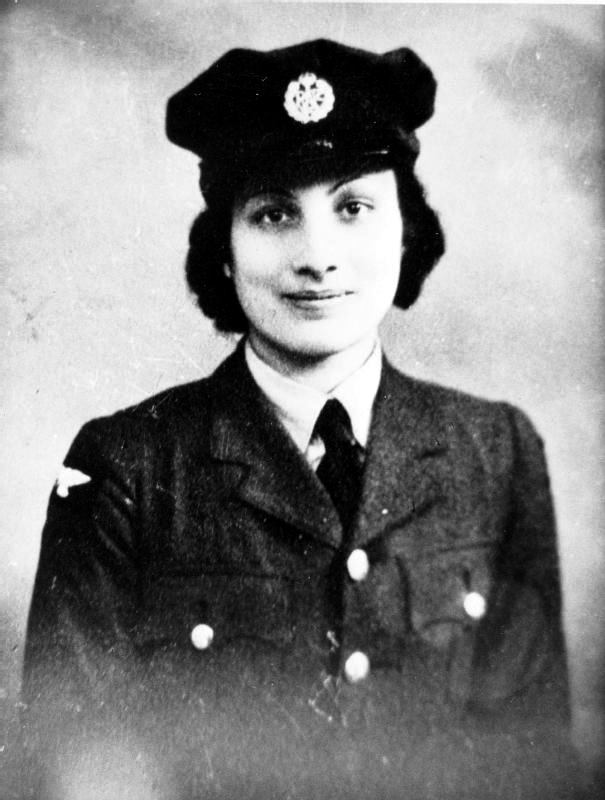
The following year she was assigned to the bomber training school before progressing to become part of the France Section of the SOE in 1943, which would require her to receive specialist training as a wireless operator in occupied France.
She would become the first female to fulfil this position as all previous women had worked only as couriers.
During her intensive training course she was put through a mock Gestapo interrogation as well as various other challenges in order to test her competencies. Her superior officers would hold conflicting opinions over whether she displayed the right qualities to complete such a mission.
Her lack of athleticism and sensitivities proved a hindrance, however her commitment was unwavering and she was eventually deemed suitable for sending to France.
Not long before she was due to leave the training site, one of her peers as well as an officer in charge grew concerned over the melancholy that appeared to consume her and warned against sending Noor.
Her brother begged his sister not to go ahead with the mission as her deep-rooted pacifist tendencies would prove insurmountable and cause a conflict of faith when faced with such a dangerous and potentially violent situation.
Noor was given one final chance after meeting with French intelligence officer Vera Atkins at a restaurant in Mayfair where she was given the opportunity to back out without any controversy. Atkins made it clear that confidence in herself and what she was doing was key, asking whether Noor felt satisfied that she could complete such a mission. Her reply was, “yes”.
Atkins remained aware of Noor’s hesitance despite her insistence otherwise, eventually discovering Noor’s problem lay with her immense guilt regarding her family. Being forced to say goodbye and withhold information from her mother and siblings proved increasingly complex for Noor.
After identifying the problem, Atkins and Noor came to an arrangement whereby her family would be kept informed with “good news” letters and if anything bad happened, her mother would only be informed right at the end when all hope of Noor being alive had vanished. Such an agreement ratified between the two women seemed to satisfy both parties and with that Noor embarked on her mission to France.
Despite previous SOE misgivings about Noor, her fluency in French and her good wireless operation skills would make her an important member of the team.
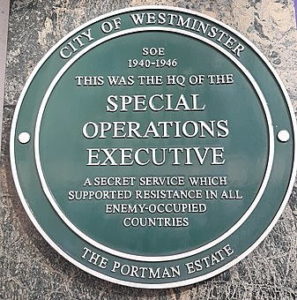 Plaque outside 64 Baker Street, Westminster, London, wartime headquarters of the SOE. Licensed under the Creative Commons Attribution-Share Alike 4.0 International license.
Plaque outside 64 Baker Street, Westminster, London, wartime headquarters of the SOE. Licensed under the Creative Commons Attribution-Share Alike 4.0 International license.
With her training under her belt and the codename Madeleine, on 16th June 1943 she was flown to France and asked to make contact with Henri Garry in Paris in order to serve as a wireless operator in Le Mans.
Not long after her arrival, the Gestapo appeared to making headway in uncovering the secret networks of communication that had been set up by the resistance.
Noor would remain and set up the radio in her Paris safe house, now working as the only agent in transmission in Paris.
The threat levels were incredibly high as the Gestapo had closed in on her network, forcing her to be constantly on the move in order to evade capture.
Such a routine of changing her appearance and address would keep her out of trouble for only four months, as she continued with her mission to transmit messages.
Tragically for Noor, the Nazis had by now a description of “Madeleine” and would continue to relentlessly pursue her.
After months of carefully avoiding being exposed, she intended to head back to England on 14th October. Sadly, this was not to be, as one month prior to her planned removal from occupied territory she was betrayed by a Frenchwoman and captured by the Gestapo.
The ordeal that followed was distressing, cruel and brutal.
After being captured she was taken to the Gestapo headquarters in Paris where she attempted to escape at least twice but sadly was caught on both occasions.
Unfortunately she had also kept copies of her secret signals and thus the Germans would use these to their advantage, deceiving those in London who believed they were in communication with a fellow officer, leading to further deaths of SOE agents.
Noor’s fate meanwhile took her to Germany where she was placed in solitary confinement in chains in Pforzheim prison.
She was considered highly dangerous and was left to spend her days in chains and subjected to regular torture. Despite the beatings she was subjected to, she never gave in and withheld information from the Gestapo officers.
Whilst imprisoned Noor attempted to communicate with other inmates by scratching her name and address onto a bowl.
Whilst she would see out her time in the prison, in September 1944 her fate and that of three of her female compatriots was sealed.
On 11th September 1944 they were sent from the prison base in Germany to Dachau concentration camp.
Two days later, after Noor endured yet more relentless torture, she and her resistance comrades were shot.
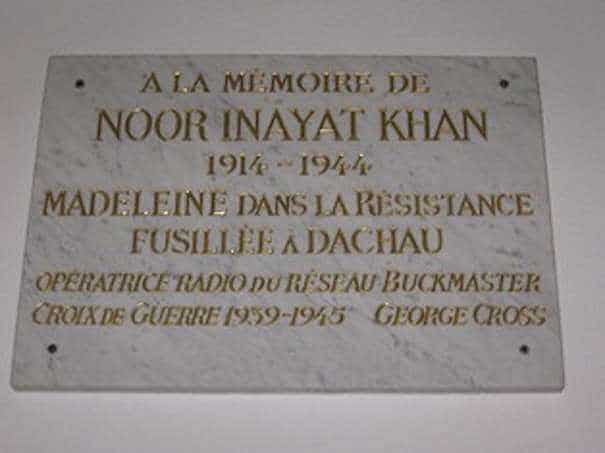
Her life was dramatically and tragically cut short by the brutal regime she had been so desperate to fight.
Whilst the war reached its conclusion and fascism was defeated, Noor and others like her, who had demonstrated such astounding bravery, were awarded with the Croix de Guerre and George Cross.
Today a blue plaque from English Heritage can be found at her former address of Taviton Street in Bloomsbury, London.
Her posthumous awards reflect Noor’s unbelievable dedication and service to Britain, France and all those saved from the rise of Nazi Germany.
Jessica Brain is a freelance writer specialising in history. Based in Kent and a lover of all things historical.
Published: 16th September 2021.
